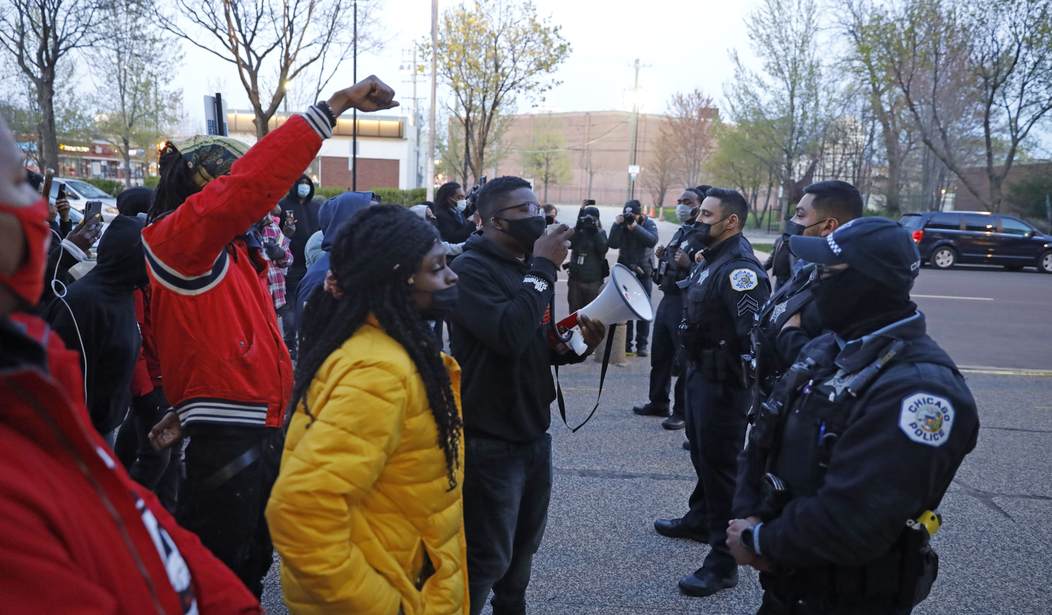Working as a police officer in any big city is a challenge. But nowhere are cops expected to work under more dangerous, challenging conditions than in the city of Chicago.
If it were only a matter of patrolling the mean streets of gang-infested neighborhoods, you could claim that it goes with the territory of being a police officer. But being a cop in Chicago means you're under a microscope from roll call until shift's end.
And few politicians are willing to have your back when it hits the fan.
The Chicago police have a checkered past. There have been bad cops, crooked cops, racist cops, and sadistic cops. But they have been massively outnumbered by brave cops, dedicated cops, compassionate cops, and determined cops who come to work every day and do what they can to deal with the mayhem on the streets.
For many, it proves to be too much. The job takes a toll, that's for sure. But the lack of backing from city hall and the constant attacks by activists who scrutinize every arrest, every warrant served, every traffic stop for evidence of wrongdoing wear down even the most dedicated officers.
A shocking study published by the Chicago Sun-Times reveals that one in six police officers hired since 2016 are no longer on the force. That's about 950 of the more than 5,750 people hired by the Chicago Police Department since 2016 have quit.
Many have moved on to jobs with suburban police departments. About 90 officers have been fired or resigned while under investigation. Another 21 have died, including seven killed in the line of duty and two shot while off duty. Four died of natural causes, four died as a result of off-duty accidents, and four more committed suicide.
Of the officers who left the Chicago Police Department since 2016, the Sun-Times found that 320 now work for other police agencies, mostly in the suburbs. Almost 90 moved to the Chicago Fire Department, something that police veterans say rarely happened in past generations.
City and state employment figures don’t account for other Chicago cops who’ve moved to out-of-state police agencies in states like Florida, whose governor has been personally involved in recruiting officers from Illinois and New York.
“You’re not capturing, obviously, the number of officers, which is probably the bulk of them, that are leaving for departments outside the state, and that was the new trend here in New York,” says Kenneth Corey, a former chief of department for the New York Police Department who now works for the University of Chicago Crime Lab.
As it turns out, leaving for greener pastures is contagious.
“All it takes is one person from a district to go to some department, and then you’ll see, in short order, three or four more follow because he calls back and tells them how great it is,” Corey says. “We’re not just seeing this in New York and Chicago, but every big city police department is struggling with that challenge right now.”
Still, the average time on the job for new recruits is less than three years. Couple that with a record number of veteran officers taking early retirement, and you have a critical staffing shortage that will take years to fix.
There were about 13,180 sworn officers on the city’s payroll in September 2019. That number has dropped by almost 1,600 by 2024.
In 2024, there have been 142 retirements, but only 103 officers have been hired. The cost of hiring, training, and seeing an officer through their probationary period is $150,000.
Smaller departments have hired away big-city officers by offering bonuses, higher pay, take-home cars and quality-of-life incentives. For instance, San Mateo County in northern California provides daycare for the kids of its sheriff’s officers.
With shorter staffing now the norm, cities like Chicago have regularly canceled officers’ days off, forcing them to work overtime. That’s a big turnoff for young officers with a family, Corey says.
“It’s a generational difference,” he says. “Cops of my generation had this insatiable appetite for overtime. You could have told me to stand knee-deep in a sewer for my time-and-a-half. It’s really a different culture. They work to live. They don’t live to work. They just kind of want enough money for them to have a comfortable lifestyle, and then they want the time off to enjoy it.”
Public service used to be a calling. This is especially true for police officers and firefighters. First responders have never been paid what they're worth, and have never had many perks that make the job easier.
It appears that the number of young people willing to answer the call to serve is fewer today than it was in previous generations.










